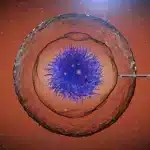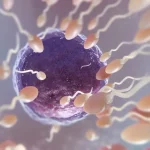
Introduction
Egg donation is a generous act that helps create families—but it’s also a medical process that must be done safely.
If you’re a current or prospective egg donor, you may wonder:
“How many times can I donate eggs?”
The answer is based on medical science, ethical guidelines, and each donor’s individual health. In this guide, we’ll explain the maximum number of donations allowed, what’s considered safe, and how EggDonors4All supports donors through repeat cycles.
What Do the Guidelines Say?
The American Society for Reproductive Medicine (ASRM) recommends:
- A maximum of 6 donation cycles per lifetime
- With at least 2–3 months between each cycle
- Medical screening before every donation
These guidelines are designed to protect the donor’s reproductive health and emotional well-being.
Why Is There a Limit?
Medical Reasons:
- Egg retrieval is a medical procedure involving hormone stimulation and anesthesia
- Repeated cycles can stress the ovaries
- Too many cycles may affect hormone balance or future fertility if not spaced properly
Ethical Reasons:
- To limit the number of genetic half-siblings
- To reduce risk of identity confusion later in life
- To prevent coercion or over-reliance on donor income
What Qualifies as One Donation?
Each completed egg retrieval counts as one donation cycle, regardless of how many eggs are retrieved or how many recipients use the eggs.
If a donor starts a cycle but withdraws before retrieval, it usually doesn’t count against her limit.
Timeline of Repeat Donation
| Donation Cycle | Recovery Time Before Next |
| 1st | Wait 2–3 menstrual cycles |
| 2nd–3rd | Repeat similar timeline |
| 4th–6th | Subject to additional review and medical clearance |
What About High Responders?
If a donor produces 20+ eggs per cycle or shows signs of Ovarian Hyperstimulation Syndrome (OHSS), she may:
- Be asked to wait longer between cycles
- Be retired early from the program for safety
- Receive closer hormone monitoring in future cycles
EggDonors4All prioritizes safety over quantity.
[Insert Image: Timeline graphic of 6 egg donation cycles with safety checks]
Alt text: Egg donor repeat cycle timeline with check-ins
Can You Donate Again with the Same Agency?
Yes! In fact, we love working with:
- Proven donors (those who’ve helped create pregnancies)
- Reliable, emotionally mature donors
- Donors with great medical response
You’ll need to:
- Repeat testing (AMH, infectious disease, etc.)
- Complete updated legal and psychological screening
- Be matched again with a family or clinic
What If I Want to Switch Agencies?
Donors may register with multiple agencies over time. However:
- All prior cycles must be disclosed
- You may not exceed 6 cycles total
- Some agencies may not accept donors who’ve already completed 4–5 cycles
Transparency is key to your safety and legal standing.
Real Donor Experiences
“I donated four times before starting grad school. Every cycle went smoothly, and now I’m focusing on my own fertility.”
– Maya, 29, Florida
“I didn’t realize there was a limit. I’m glad my agency explained the 6-cycle rule—it helped me plan.”
– Jess, 26, New York
“Each donation gave me confidence, support, and purpose. I stopped at 5 to prioritize my health.”
– Fatima, 31, Toronto
Conclusion
Egg donation is powerful—but it’s not something to do indefinitely. Medical and ethical guidelines help ensure that donors stay safe, healthy, and in control of their futures.
At EggDonors4All, we monitor each donor closely and limit cycles based on your well-being, not demand.
📞 Want to donate again or learn about your eligibility for a new cycle?
Call 1-212-661-7177 or email info@eggdonors4all.com to speak with a donor coordinator.
About the Author
Dr. Kulsoom Baloch
Dr. Baloch oversees the medical safety program at EggDonors4All, ensuring donors never exceed healthy limits and receive comprehensive care before, during, and after each cycle.

Dr. Kulsoom Baloch
Dr. Kulsoom Baloch is a dedicated donor coordinator at Indian Egg Donors, leveraging her extensive background in medicine and public health. She holds an MBBS from Ziauddin University, Pakistan, and an MPH from Hofstra University, New York. With three years of clinical experience at prominent hospitals in Karachi, Pakistan, Dr. Baloch has honed her skills in patient care and medical research.





